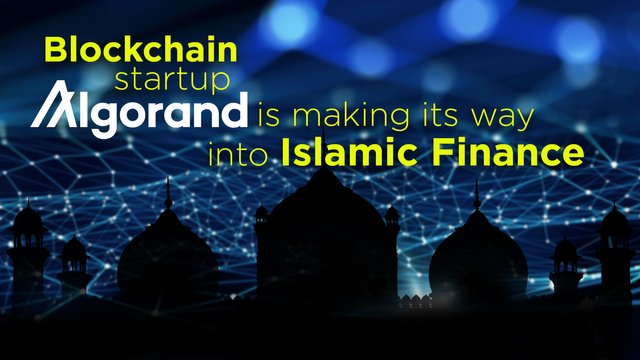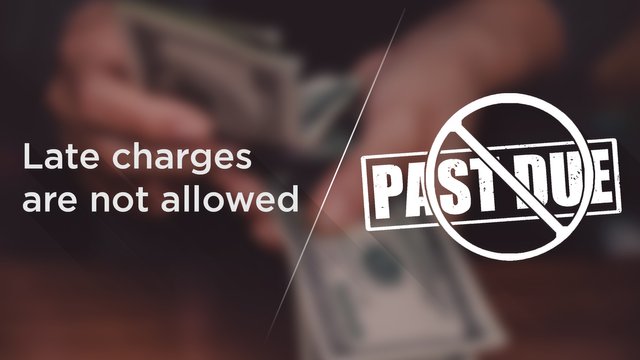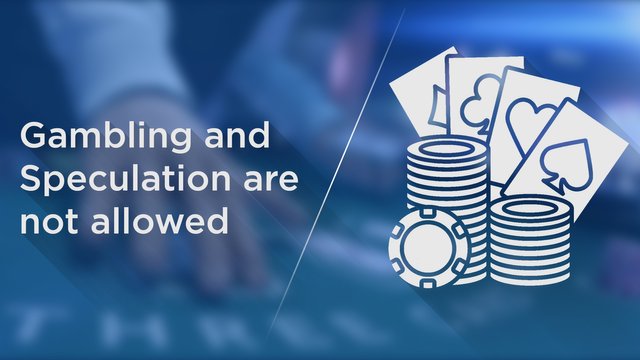Blockchain startup Algorand is making its way into Islamic finance

The Algorand Foundation revealed that they have been deemed Sharia-compliant as we adhere to the tenants of Islamic law. The certification was provided by Bahrain-based Shariya Review Bureau (SRB). Our CEO Steve Kokinos said in a statement:
“Our vision at Algorand has always been inclusivity. I am excited that forward-thinking Islamic enterprises will now be able to realize new business opportunities on a platform that is congruent to their finance guidelines.”
What does it take to be Sharia-compliant?
To be compliant with Sharia law, Islamic banking and finance prohibit certain activities:
- Islamic rules on transactions forbid the use of interest. As such, paying or charging interest is prohibited.
The business can’t invest in haraam activities like selling alcohol or pork or producing media such as gossip columns or pornography.

Charging extra for late payments is not allowed. However, some believe that late fees may be charged if they are donated to charity, or if the buyer is deliberately making a late payment.

“Gambling” or “speculation” isn’t allowed. Any sort of involvement in contracts where the price of an asset depends on a predetermined, uncertain event in the future is maisir and forbidden.

Derivatives, options, and futures are categorized as Gharar and banned in Islamic finance. Islamic finance supporters believe that these involve excessive risk and may foster uncertainty and fraudulent behavior. All transactions must be "directly linked to a real underlying economic transaction." This excludes all options and derivatives.
Profit or loss sharing models allowed in Islamic Finance
The permissible profit-or-loss sharing arrangements allowed in Islamic finance are as follows:
#1 Mudarabah or profit-and-loss sharing contract
The Islamic bank pools investors' money and assumes a share of the profits and losses, as pre-determined by the depositor. The money is invested in a group of mutual funds that has been actively screened for Sharia compliance. The parties in this contract are called mudariband and the rabb-ul-mal.
#2 Musharakah
Musharakah or partnership and joint-stock ownership: Musharakah is a relationship between two or more parties that contribute capital to a business and divide the net profit and loss pro-rata. There may be two or more partners involved, unlike Mudarabah, and they are all entitled to participate in management. The profit is distributed in the pre-agreed ratio. On the other hand, the loss is borne by each partner in proportion to their respective capital contributions.
In Musharaka business transactions, Islamic banks may issue "floating rate interest" loans. This floating rate is pegged to the company's individual rate of return. This means that the bank's profit on the loan is equal to a certain percentage of the company's profits.
#3 Diminishing Musharaka
Diminishing Musharaka or diminishing partnership is a popular type of financing for major purchases, like housing. A “musharaka al-mutanaqisa” agreement involves two other Islamic contracts:
- Ijarah: Leasing by the bank of its share of the asset to the customer.
- Bay’: Gradually selling the bank's share to the customer.
Here are some pointers that you must keep in mind about diminishing Musharaka. Let’s look at this from the POV for a bank and its customers.
- The customer and the bank have joint ownership of the purchased asset.
- The customer’s share is their down-payment while the bank’s share is significantly larger.
- The customer leases the asset from the bank while gradually paying off the bank.
- If a default occurs, then the bank and the customer receive a proportion of the proceeds from the sale of the property based on their present share.
Conclusion
Needless to say, we are very proud of being a part of a select group of companies who are Sharia-compliant. In the blockchain space, there are very few companies like Corda and Stellar, who have received this honor. The SRB will review every dApp built on our platform for sharia compliance.
SRB CEO Yasser S. Dahlawi said in the statement:
“We stand ready to support the future ambitions of the users of Algorand in the Islamic financial market.”
By leveraging this compliance, we will be able to do business with a full network of Islamic investors. According to a 2017 study by Malaysia International Islamic Financial Center, these investors are reportedly worth more than $70 billion.



Congratulations @blockcommerce! You have completed the following achievement on the Steem blockchain and have been rewarded with new badge(s) :
You can view your badges on your Steem Board and compare to others on the Steem Ranking
If you no longer want to receive notifications, reply to this comment with the word
STOPTo support your work, I also upvoted your post!
Vote for @Steemitboard as a witness to get one more award and increased upvotes!